2025-2028
Strategic Plan
In the spirit of Open Education, this Strategic Plan is a living document. While the bulk of this plan will remain as it is in its original iteration, the LibreTexts team reserves the right to update the content contained within to keep aligned with their goals of making education freely accessible to all.
1. Our Mission
The LibreTexts mission is to bring together students, faculty, and scholars in a collaborative effort to provide and accessible, and comprehensive platform that empowers our community to develop, curate, adapt, and adopt openly licensed resources and technologies; through these efforts we can reduce the financial burden born from traditional educational resource costs, ensuring education is more accessible for students and communities worldwide.
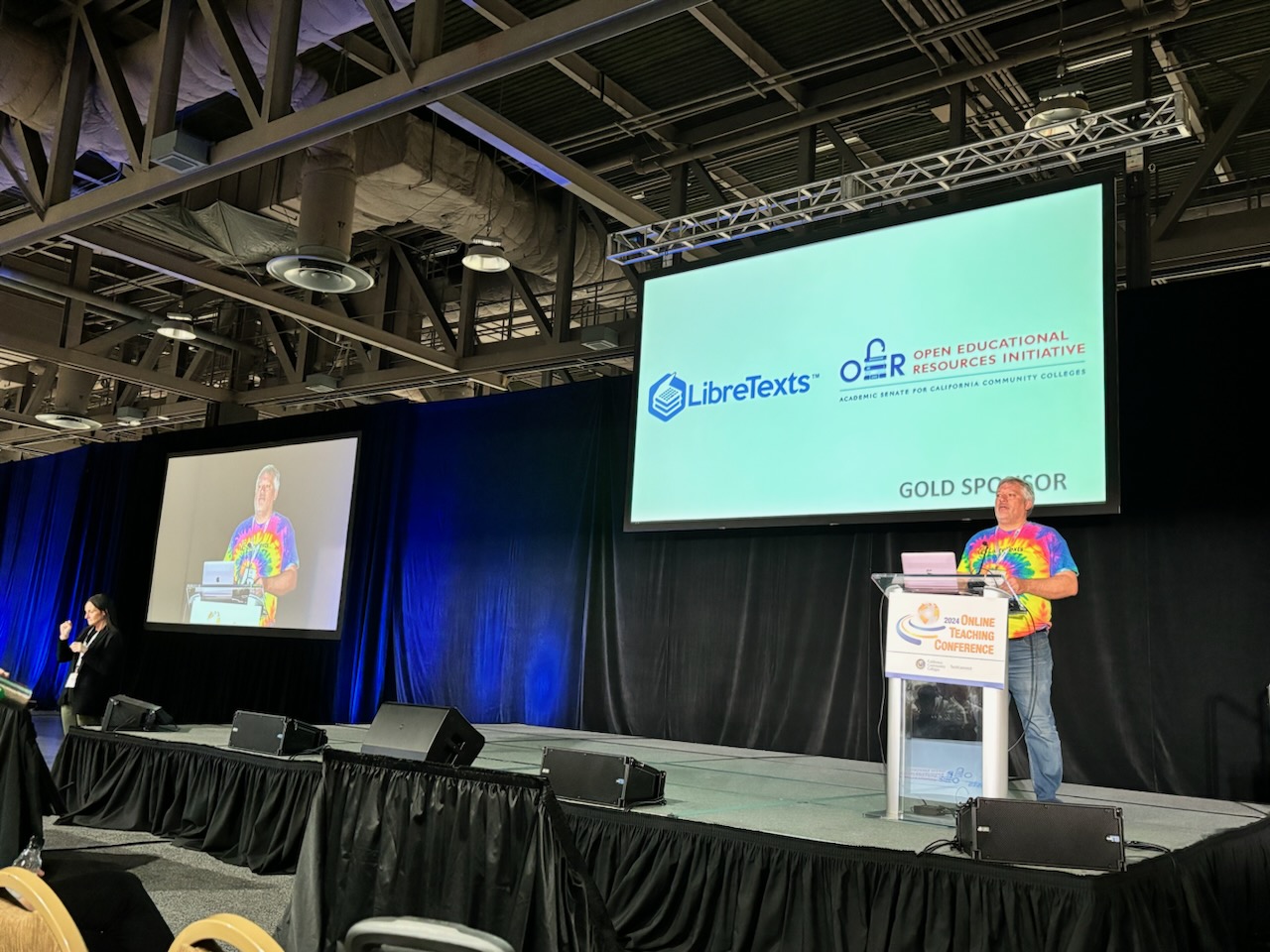
2. Our History
Delmar Larsen, PhD, LibreTexts Founder and Executive Director, and Professor of Chemistry at the University of California, Davis, began what we now call LibreTexts as the Chemwiki in 2008 because he was tired of asking his Chemistry students to pay hundreds of dollars for commercial learning resources. He also knew open educational resources (OER) could help his students save money and succeed in his course because he could adapt them directly to his students’ needs. Delmar understands first-hand the transformative power of education, crediting his own education for lifting him out of poverty while experiencing homelessness, living in his dad’s truck behind a Denny’s restaurant.
The ChemWiki received very little financial support when Delmar created it as an Open Pedagogy project with his students. It operated as a grass-roots project with voluntary support until grant funding came through in 2013 from the National Science Foundation (NSF) and the LibreTexts project was born. Since then, LibreTexts has been fortunate to receive steady federal and state funding which has allowed the project to grow exponentially and continually adapt to meet the needs of educators in the classroom and beyond. In response to the growing interest in these resources, we have developed what we call a greater LibreVerse of technologies to make the adoption and adaptation of OER as streamlined and efficient as possible, including our open homework and assessment platform, ADAPT.
3. Who We Are
The LibreTexts project is more than just textbooks.
As academics, our focus remains steadfast on assisting educators who have decided to replace their traditional teaching resources with OER in order to better meet the needs of their students.
As a non-profit, we believe all of the resources we host are owned by our community at large and should be made freely available any time, any where.
As instructors, we believe open pedagogy is an essential part of the educational experience as we aim to create a more dynamic, collaborative, and accessible learning environment where students are empowered to actively participate in the creation and dissemination of knowledge.
As a community, we collaborate with individuals and organizations to champion open education initiatives, support institutional publishing programs, drive curriculum development projects, and more.
Visit our About Us page to see our team.
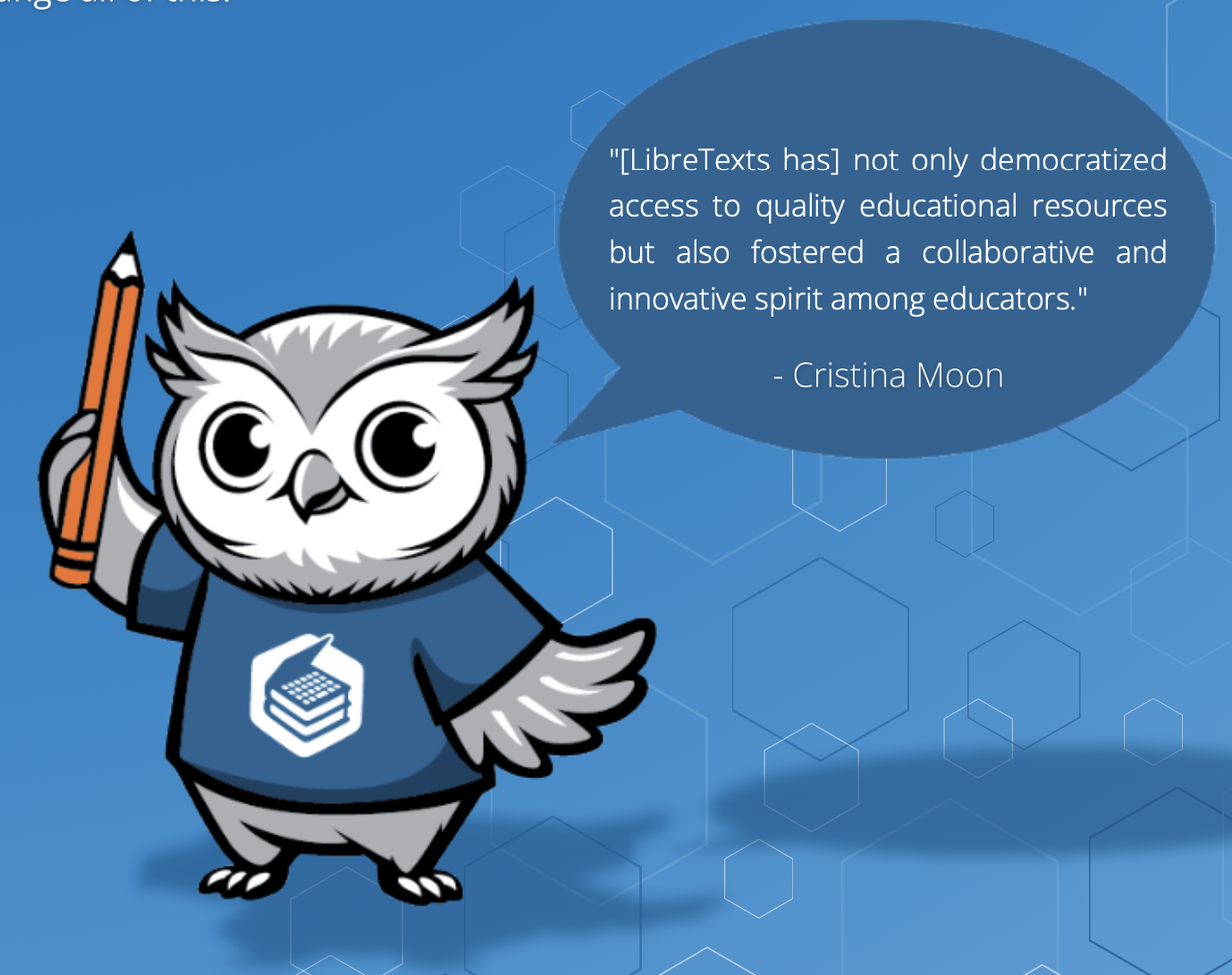
4. Why Are We Here?
LibreTexts is dedicated to providing a complete range of customizable and accessible higher educational materials. For LibreTexts this means accessible everywhere, readable by all, affordable at the lowest possible cost, at the highest standard, and technologically advanced.
The cost of educational resources is just too high and continues to increase each year. The price of textbooks remains a barrier to education that some students simply cannot afford; in other words, affordability is an accessibility issue. According to a recent Faculty Watch Report, 1nearly two-thirds of faculty members view textbook affordability as a top priority for their institutions. While the cost of textbooks has plateaued at an unaffordable level, commercial publishers are now driving the cost of educational materials higher with the addition of online homework systems that require students to pay access fees for each course in which they are used. Additionally, traditional educational resources available from commercial publishers are not always as current as they could be, and should be, due to lengthy publication processes. There is also no means by which teaching faculty can adjust these resources to best meet the needs of their curriculum.
Because open educational resources are freely available to use and adapt, they can change all of this.
5. Our Vision and Values
We envision a future where the majority of resources used in education, especially higher education, are openly licensed and adaptable. In other words, we believe an educational landscape where OER is the norm, and not the exception, is possible. We believe the future of education is open.
Openness, Community, and Opportunity.
5.1. Openness
Openness emphasizes transparency, accessibility, collaboration, and inclusivity in the design and delivery of learning experiences. It is grounded in the belief that education should be a shared public good, where knowledge and resources are freely available to empower learners and educators to innovate, adapt, and thrive. Openness embraces practices and policies that remove barriers to learning and encourage shared ownership of educational processes. At LibreTexts, we value openness in all we do.
Access for All
Ensuring that all learners, regardless of their socioeconomic background, can access high-quality educational resources and opportunities without cost or unnecessary restrictions.
Collaboration and Community
Fostering a culture where educators, students, and institutions actively share ideas, resources, and expertise to create richer, more personalized, and meaningful learning experiences.
Adaptability and Flexibility
Encouraging the customization and remixing of educational content to meet diverse learner needs, local contexts, and emerging trends.
Transparency
Promoting open communication between students, faculty, administrators and the development team about pedagogical goals, methods, and outcomes.
Promoting institutional accountability with open communication between LibreTexts users and the LibreTexts Team about ongoing projects, timelines, and trainings, enabling accountability and fostering trust.
By embracing openness, education becomes more inclusive, participatory, and responsive to the needs of learners and society. It empowers individuals to contribute to and benefit from collective knowledge while breaking down traditional barriers that limit access to education.
5.2 Community
Community refers to a group of individuals and organizations who collaboratively engage in teaching, learning, and knowledge-sharing to foster a supportive, inclusive, and participatory educational environment. The open education community is no exception: it encompasses educators, students, researchers, librarians, institutions, and other stakeholders working together to create and disseminate knowledge while upholding the principles of openness, equity, and accessibility. Community is foundational and manifests in several ways.
Collaboration and Co-Creation
Members of our community, including both instructors and students, contribute to the development, adaptation, and sharing of OER, ensuring materials are relevant, contextual, and high-quality.
Shared Ownership and Agency
A shared sense of purpose empowers our community members to actively shape the direction of learning experiences, driving innovation and mutual accountability. We use the term "Curatatory" to highlight that we do not just maintain a simple repository but take an active, shared ownership of all of the content on our platform. We are curators, responding to both internal and external feedback, ensuring accessibility, and continually updating the material. Essentially, we go beyond the mindset of "the buck stops at publishing."
Support and Networking
Our community provides spaces for individuals to connect, exchange ideas, and offer support, enhancing both individual and collective growth.
Access for All
Our community values the contributions of all members, ensuring multiple perspectives and experiences that enrich the educational process. We also want to enable students from any institution the same access to educational tools and resources.
Sustainability
Community engagement helps sustain open education initiatives through shared responsibilities and collective resources, reducing reliance on single individuals or institutions.
In essence, the LibreTexts community is about building relationships and networks that prioritize shared knowledge, collaboration, and inclusivity to advance the common goal of accessible learning for all. Our community is at the heart of everything we do.
5.3. Opportunity
The LibreTexts team believes the opportunities inherent in OER are endless. We believe in the transformative potential of leveraging openness to reimagine education as a tool for creating a society where students from any background can achieve their potential. We believe that by working together with our community we can remove barriers to education, foster collaboration, prioritize adaptability, and, ultimately, empower individuals and communities to overcome obstacles and unlock opportunities for personal, professional, and societal growth.
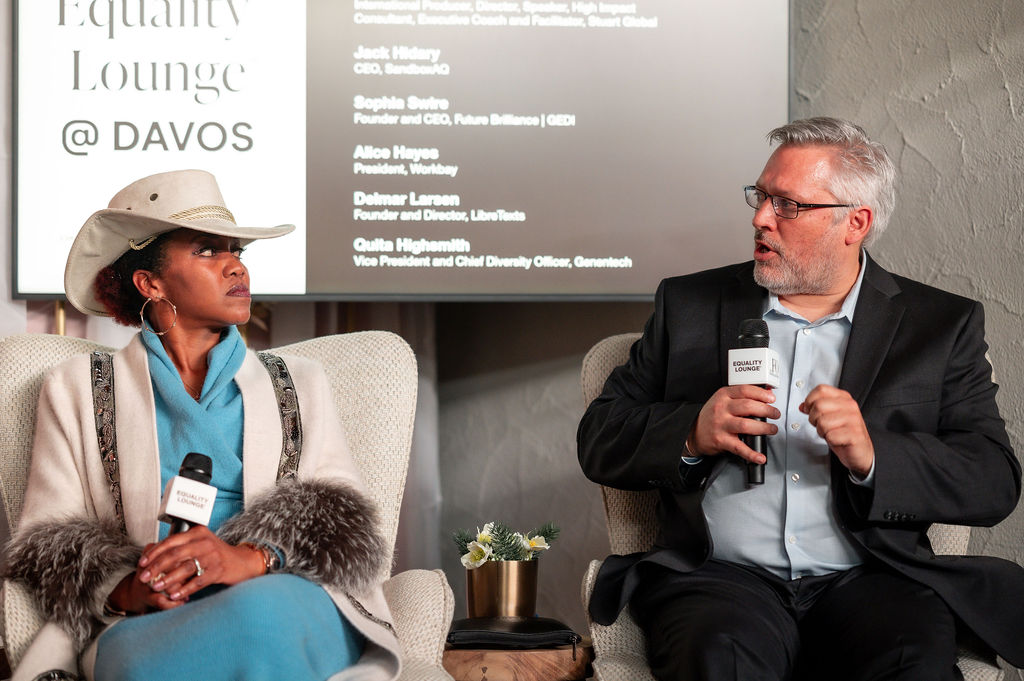
January 2024: Delmar Larsen speaking on stage at The World Economic Forum, Davos, Switzerland.January 2024: Delmar Larsen speaking on stage at The World Economic Forum, Davos, Switzerland.
6. Realizing Our Vision
We provide the necessary tools and support for educators and students who are looking to switch to OER, and those who are already using OER in their courses. We are an all-inclusive OER provider with a focus on sustainability and open educational practices, including open pedagogy. LibreTexts provides the toolbox for building the educational resources our community requires.
Open Education Practices
Open education practices are part of an educational approach that combines the principles of OER with innovative teaching practices that emphasize collaboration, sharing, and learner-centered methodologies. Specifically, we embrace open pedagogy which leverages freely accessible and openly licensed materials to encourage educators and students to co-create knowledge and co-participate in the learning process, rather than relying solely on traditional students-as-consumers pedagogies.
We firmly believe that removing barriers, perceived and real, to the adoption of OER will provide educators the incentive they need to ditch their expensive commercial publisher resources and go open. We know it is not always easy to change minds regarding traditional resources that have been around for decades, but we believe we can reach people where they are by giving them a space to learn and grow alongside other educators who are of the same belief that we can, and should, do better by our students.
7. Our Target Audience
At LibreTexts, we serve a diverse range of audiences, each with unique needs and objectives within the educational landscape. Our platform is designed to support and empower Students, Instructors, IT Professionals, Instructional Designers, Librarians, and Administrators. By providing tailored resources, tools, and support, we enable each group to achieve their goals whether it's streamlining processes, enhancing course content, integrating technology, promoting open educational resources, or fostering collaboration. Together, we work to create a more accessible, innovative, and effective learning environment for all.
Who Makes Up Our Target Audience?
Administrators
Administrators are key to fostering community, improving access to quality OER content, and facilitating professional development. Our tools are designed to support their efforts in streamlining processes and enhancing the educational experience within their institutions.
Instructional Designers
Instructional Designers use our platform to help instructors integrate educational technology and OER content into their courses. Our tools enable them to create cohesive, effective learning experiences that support achievement of desired learning outcomes.
Instructors
Instructors are part of a community dedicated to enhancing their courses through high-quality Open Educational Resources, open pedagogical practices, and active participation in Communities of Practice. Our platform supports their efforts to create engaging and effective learning experiences.
IT Professionals
IT professionals rely on our expertise and resources to seamlessly integrate educational tools and technologies with campus systems. We support their efforts to enhance the technical infrastructure that drives effective learning environments.
Librarians
Librarians use our resources to educate and engage their colleagues across campus, promoting awareness and adoption of OER. We support their efforts to expand access to high-quality educational materials throughout the institution.
Students
Students engage with content, complete assignments, and collaborate with their instructors and peers to co-create new educational materials. Our platform provides a space for active learning and interaction, supporting their academic growth and development.
Strategic Goals 2025-28
8. LibreTexts’ Strategic Goals
Trust in higher education has been steadily declining over the past decade. In a 2023 Gallup poll, only 36% of American reported having a great deal of confidence in higher education, a drop of nearly 20 percentage points from 2015. That said, while trust in higher ed might be waning, there are still many who believe a college education is a worthwhile investment--so long as it’s affordable.
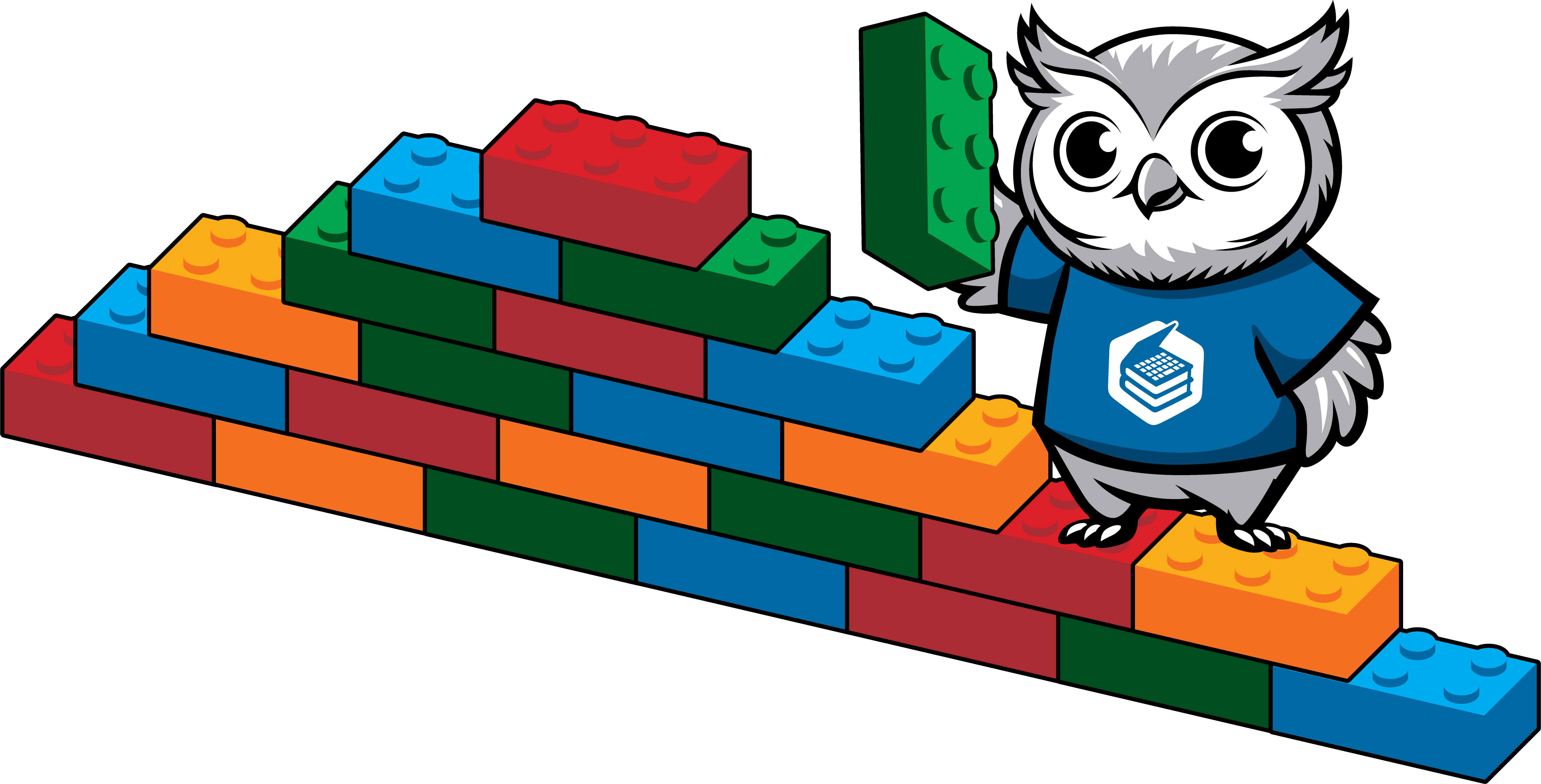
This Strategic Plan is driven by three key goals:
- As educators and former students, we are committed to restoring trust in higher education by showcasing how a college education, particularly when rooted in open pedagogy, can become more accessible through the use of Open Educational Resources.
- Over the past 17 years, we have cultivated a strong community of open education advocates and practitioners who are uniquely positioned to address educational inequities. Our goal is to celebrate and amplify their contributions to the open education movement, while proactively addressing their needs as they arise; having a strategic plan helps us anticipate and meet these needs.
- Recognizing the unpredictable nature of nonprofit funding, we know we must actively seek new revenue streams outside of traditional grant funding in order strengthen the foundation we've built. This will ensure that we can operate sustainably, maintaining the high level of service and support our community has come to expect from us for years to come.
8.1 Building a Sustainable and Interconnected LibreVerse
A Roadmap for Growth and Impact
LibreTexts thrives on our ability to deliver powerful applications that meet the community’s needs while remaining low- or no-cost. Our growth thus far has been largely organic and features have been developed on an as-needed basis. To ensure the sustainability and success of our mission, we realize the need to create and deliver on a more thorough roadmap that transforms the LibreVerse into a coherent, interconnected ecosystem.
Author Experience
To increase adoption of our tools and retention of our author user base, it is imperative that we make our ecosystem more easily approachable. We are strategically shifting more development effort towards building and honing authoring tools and features that are faster, more intuitive, and more accessible. The Academy will be grown to reduce the learning curve and support faculty in authoring and finding community
Business Intelligence and Resilience
To better serve our community and improve our ecosystem, we must understand how the two interact. By improving internal metrics and structuring important data, we can make data-driven decisions to iteratively improve our offerings. We will make data available to our community whenever reasonably possible in order to foster a model of transparency and trust and create a more effective feedback loop. As part of creating trust, we will continue to invest time and resources in preparing for unforeseen circumstances and ensuring high availability of our applications.
Dissemination
We continue our commitment to advance the widespread availability and adoption of quality OER by investing time and resources into improved portability and accessibility of these materials. We will continue to leverage our technical infrastructure and community relationships to ensure learners have access to OER in their preferred formats, regardless of their socioeconomic status.
Learning Applications
As the LibreVerse continues to grow, we iterate on and provide powerful learning applications and classroom tools in order to continue reducing the burden of the costs of education around the globe. We offer a number of specialized applications to our community with the goal of making quality educational experiences accessible to all learners.
Reader Experience
Our vast collection of educational content is how LibreTexts got its start, and what drives us today. We reaffirm our dedication to offering high quality and easily accessible OER by continuously enhancing the reading experience on the LibreTexts Libraries. As they continue to serve thousands of users every day, we are focused on creating a streamlined experience while investing resources in accessibility features to realize our core value of openness.
8.2 Development and Launch of The LibreTexts Academy
A Center for Open Instructional Innovation and Professional Development
The LibreTexts Academy is a suite of professional development opportunities offered by our team of experts. Professional development is an essential investment for educational non-profits striving to remain effective, innovative, and impactful. By offering diverse opportunities through our Academy, such as summer-long intensive cohorts, online certifications, and institution-based support programs, we empower educators and institutions to adapt to an ever-evolving educational landscape. These programs equip educators with the skills and confidence necessary for integrating cutting-edge tools, such as Jupyter Notebooks and ADAPT Homework Question Authoring, alongside OER textbooks, into their teaching. Through certifications in areas like content curation and open pedagogy, educators can meet the growing demand for inclusive and adaptive learning environments that serve our increasingly broad student populations.
Structured initiatives, such as train-the-trainer certifications and year-long support cohorts, amplify the reach and sustainability of what Academy can offer educators in the open education community. These models not only build individual expertise but also cultivate in-house OER champions who can lead institutional efforts on their campuses. For instance, learning how to remix or maintain content on LibreTexts enables educators to tailor resources to their specific curricula, while certification as a LibreTexts Certified Educator can enhance credibility and recognition by peers across institutions. By integrating these professional development opportunities, LibreTexts aims to foster a culture of continuous learning, ensuring that educators and institutions are better equipped to address challenges in an ever changing educational landscape, drive student success, and advance equitable access to high-quality education.
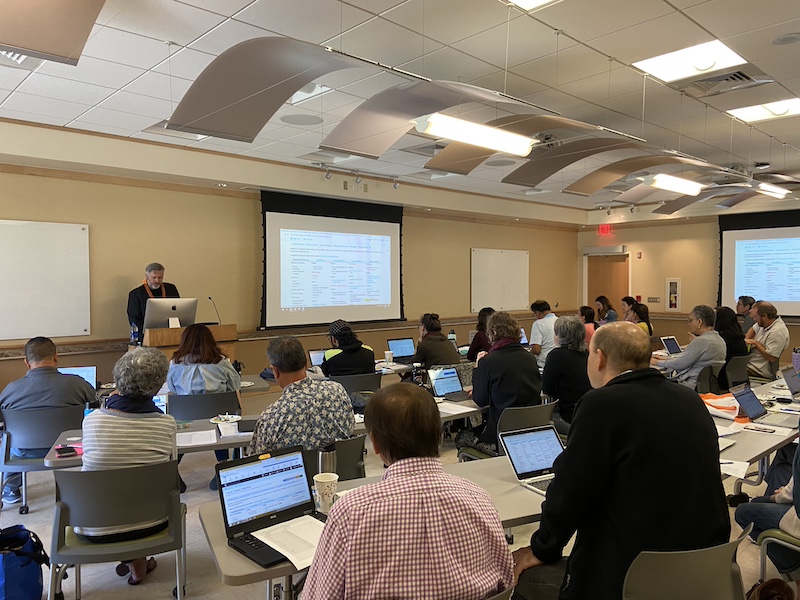
March 2020: Delmar Larsen leading the first LibreFest workshop at Leeward Community College, Hawaii.
8.3 Strengthening Community Partnerships
Academic Librarians, Communities of Practice, and Faculty
Faculty members are often the catalysts for academic innovation, research advancements, and student success, making them invaluable partners in advancing educational initiatives. What sets LibreTexts apart from similar organizations is our connection, and commitment to academia. Our project was founded by academics to support academics across all disciplines, departments, and institutions. Direct outreach to faculty in higher education is a pivotal strategy for driving meaningful collaboration and impact. Effective outreach begins with understanding their unique needs, challenges, and priorities, which can vary by discipline, institution type, and student demographics. By engaging directly with faculty, we can tailor our resources and programs to align with their goals regardless of whether it’s enhancing curriculum design, incorporating experiential learning opportunities, or addressing access gaps in education.
The benefits of direct faculty outreach are both immediate and far-reaching. Building strong relationships with faculty fosters trust and opens the door to co-create initiatives that enrich teaching practices and student engagement. Faculty-driven partnerships also create ripple effects, as their influence extends to students, colleagues, and broader institutional policies. Additionally, collaborating with faculty provides us with critical insights into higher education trends and challenges, allowing us to remain responsive and relevant. By establishing ourselves as a trusted resource and partner, we not only enhance the impact of our mission but also empower faculty to amplify theirs, creating a mutually beneficial and sustainable cycle of innovation and growth in higher education.
Furthermore, expanding our community partnerships extends beyond individual faculty to encompass broader academic networks. Engaging with communities of practice, such as professional learning communities and discipline-specific groups, allows us to tap into collective expertise and collaborative problem-solving opportunities. Similarly, outreach to academic librarians is crucial, as they are essential partners in information literacy and resource curation, directly impacting student learning and access to educational resources, including OER.
By fostering open communication and trust, we position ourselves as a partner invested in the success of students, educators, and broader communities at large. These partnerships not only enhance our ability to deliver meaningful programs but also amplify our shared vision of accessible, affordable, high-quality education for all.
8.4 Building a Sustainable and Transparent Model
Diversifying Funding and Ensuring Long-Term Growth
To ensure the long-term sustainability of the LibreTexts mission, it is critical to explore and adopt new methodologies for diversifying our funding streams. Diversification not only mitigates financial risks but also creates opportunities to engage a broader range of stakeholders who share our vision.
Our approach for the next three years will include:
- expanding traditional fundraising methods, such as cultivating relationships with individual donors and institutional partners.
- integrating innovative models like social enterprise ventures, and fee-for-service programs like The Academy which offers a fee-based support mechanism to ensure a sustainable path to keeping our high standards of support for faculty, staff, and administrators.
- cause-based crowdfunding campaigns.
By leveraging these varied avenues, we can build a more robust financial foundation that supports both our current operations and future growth.
Additionally, diversifying funding calls for a strategic alignment of our values and activities with emerging trends in philanthropy and impact investment. For example, tapping into grants that prioritize equity, sustainability, or technology-driven solutions can help us stay relevant while also opening up avenues for new funding pools. Engaging in partnerships with organizations pursuing similar goals can also amplify our efforts, attracting co-funding opportunities and shared resources. By investing in these forward-thinking strategies, we position ourselves to navigate financial uncertainties, sustain our programs, and continue making a meaningful impact in the communities we serve.
Our focus on sustainability means we are looking to the future in everything we do to ensure the resources that our community has come to rely upon will always be available. The LibreTexts project consists of only living resources which means nothing in our greater LibreVerse ecosystem is considered static, including our strategic plan. The adaptability of our resources and technologies is at the crux of everything we do.
9. Concluding Comments
At LibreTexts, we envision a future where education is a driving force for social justice, opportunity, and collective progress.
What began as a way to help Chemistry students at the University of California, Davis save on educational resources, has evolved into one of the largest and most impactful open education ecosystems online, with the potential to reach millions of students and educators globally.
We believe open education is in everyone’s best interest. We are committed to breaking down the barriers that still exist in education, raising awareness about the transformative power of Open Education and OER, and building communities that are committed to these values. We offer educators a chance to experience the magic that unfolds when traditional textbooks are replaced with the innovative textbooks of the future. We believe community is at the heart of everything we do, and as a community we are committed to ensuring students succeed at every stage of their educational journey.
We are educators, developers, librarians, advocates, and students who are continuing to build on a 17-year legacy.
Join us in creating a space where open initiatives can flourish, and where open minds open the doors to a society where "open" is the norm, not the exception.
10. Testimonials
The power of LibreTexts and ADAPT has been transformative in my classroom and in OER development. These platforms have not only democratized access to quality educational resources but also fostered a collaborative and innovative spirit among educators. By eliminating the high costs associated with traditional textbooks and homework platforms, LibreTexts has enhanced the learning experience and empowered students to achieve their academic goals without the financial burden traditionally associated with higher education.
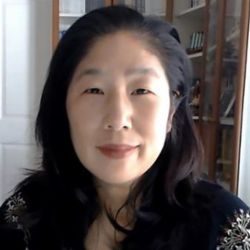
Cristina Moon, Ph.D.
Spanish Faculty and OER/ZTC Coordinator
As a full-time OER Librarian, I work with faculty across multiple disciplines, modalities, and platforms to support the adoption, curation, and creation of open educational resources. We recognize that faculty have limited time, and learning new software can be daunting. Most faculty default to Word, Google Docs, or Canvas to build OER, but these tools often result in cumbersome, difficult-to-navigate resources that can take 150–300 hours to develop. Faculty struggle to edit long documents and remix content effectively, and students find the final product less usable.
Switching to LibreTexts transformed our workflow. Tasks that once required over 100 hours now take just one or two. The total time to remix and curate an OER dropped from 300 hours to just 20. LibreTexts streamlined our work breakdown structures, making the entire process more efficient, scalable, and sustainable.
I’ve seen the results firsthand. Faculty love the flexibility, and students love having their materials in multiple formats—whether in print, on their phones, embedded in Canvas, or on the LibreTexts website.
I’m all in. I’ve drunk the Kool-Aid. I’ve seen the power of LibreTexts, and it’s the software I promote the most.
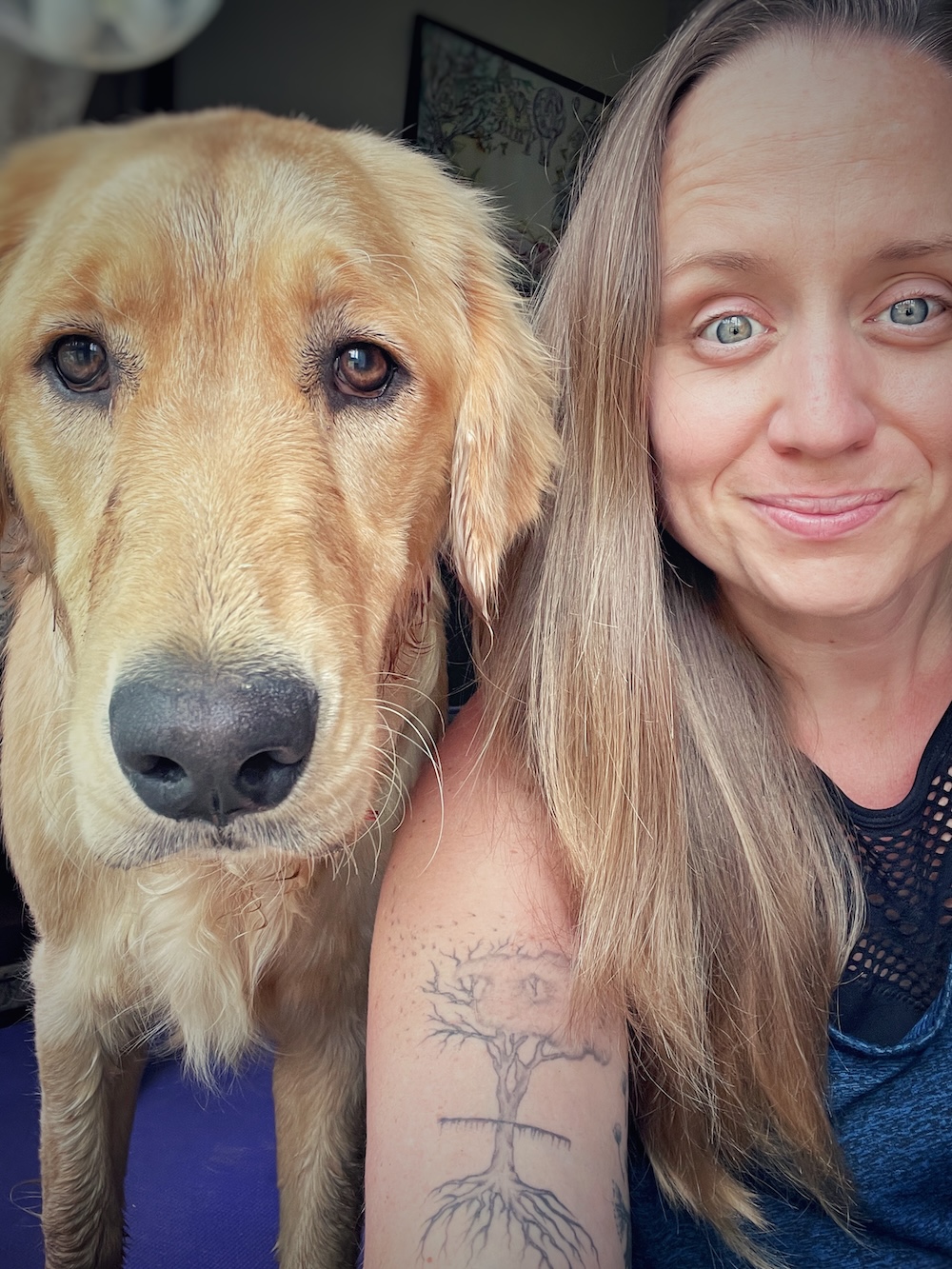
Rachel Fleming
OER Librarian
LibreTexts provides the key that unlocks the door to a world of possibilities for accessing, creating, and sharing educational resources that empower teachers and students to engage in authentic, meaningful learning and teaching opportunities. This inventive, innovative repository of open educational resources can help guide learners to success.
Just as the protagonists in "The Wizard of Oz" discover their own potential abilities and strengths without needing to rely on traditional means, so, too, LibreTexts can serve as a pathway, similar to "The Yellow Brick Road," to the discovery of skills, knowledge, and self-confidence." There's no place like LibreTexts for the exciting world of open education!
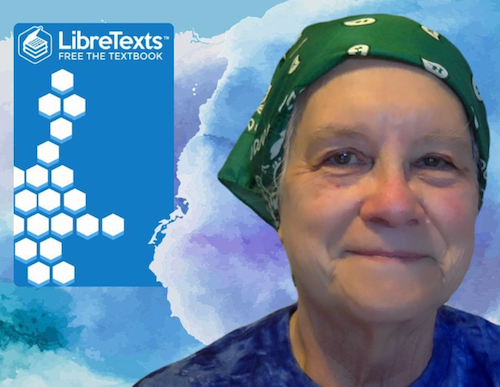
Armeda Reitzel
Professor of Communication, California State University, Humboldt
LibreTexts has made my transition to using OER textbooks in all my math courses easy and enjoyable! I love the way I can customize existing OER content so easily into a coherent textbook that covers exactly the right topics and in the way I want them presented. If an explanation or an instruction is unclear, I can improve the wording quickly and easily. If additional examples are needed for a topic, I can easily add them. My students appreciate not having to pay for a textbook, and their performance has not been hindered. In fact, on topics for which I have added my own new explanations and examples, they have performed even better than before!
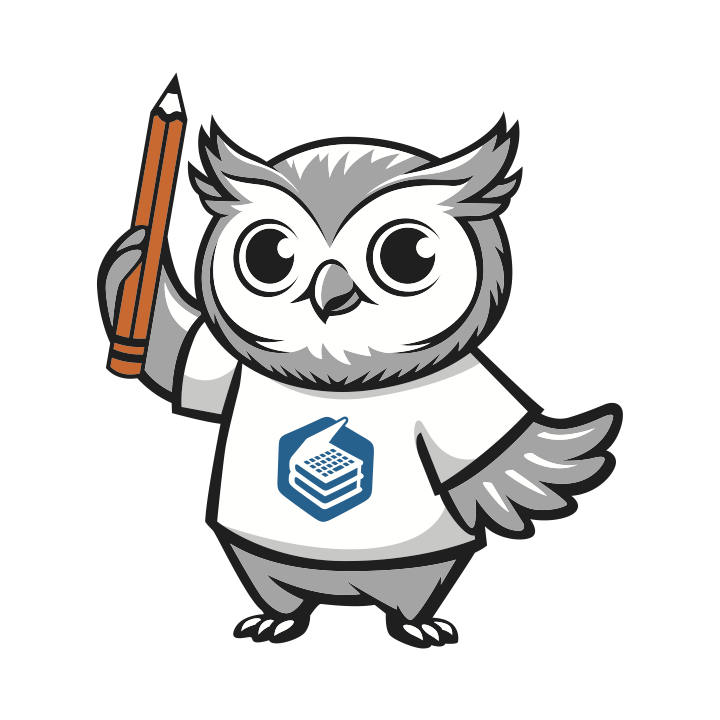
Paul Seeburger
Professor, Lake Tahoe Community College
I have moved to LibreTexts for all of my classes. It has allowed me to take full advantage of OER so that I was able to customize the textbook by remixing it and also directly embed my videos throughout and embed fully interactive activities allowing students to have mathematics learning materials that address all of their learning styles. My students have repeatedly thanked me for providing them with free materials that provide them the opportunity to succeed in their math classes.

Dr. Larry Green
Professor, Lake Tahoe Community College
I have been using the LibreTexts ADAPT homework system for several years, and it has been an invaluable tool for student learning. The well-designed question banks provide engaging practice opportunities that help students deepen their understanding of course material. ADAPT has become an integral part of my teaching strategy to support student success.
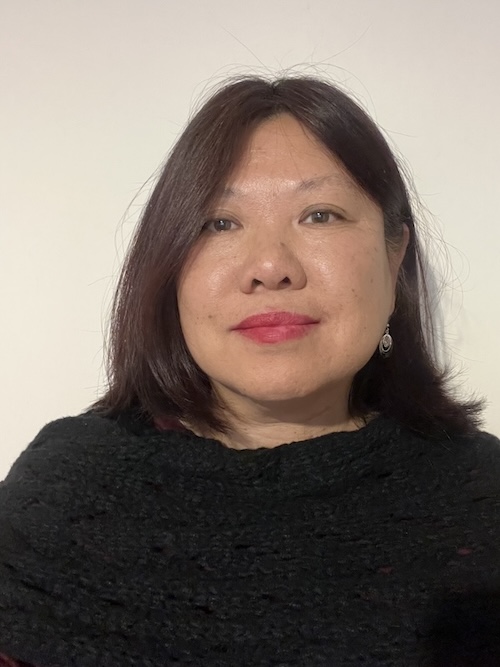
Ying Liu
Professor of Biology, City College San Francisco
The power of LibreTexts and ADAPT has been transformative in my classroom and in OER development. These platforms have not only democratized access to quality educational resources but also fostered a collaborative and innovative spirit among educators. By eliminating the high costs associated with traditional textbooks and homework platforms, LibreTexts has enhanced the learning experience and empowered students to achieve their academic goals without the financial burden traditionally associated with higher education.
In the past 4 years, I have had the pleasure of co-authoring three Spanish OERs through LibreTexts and ADAPT. Through these projects, we are not only creating content for our classes, but also pioneering a new era of accessible and high-quality open resources. Our work exemplifies the potential of OER to revolutionize education by making it more inclusive and equitable. By having my Spanish OER textbooks in LibreTexts and using the free ADAPT homework, my students don’t have to worry about paying for the $200 textbook bundle anymore. LibreTexts has made this possible, and it stands as a testament to what we can achieve when we prioritize accessibility and innovation in education. Together, we are shaping a future where every student has the resources they need to succeed.

Cristina Moon
Instructor, Chabot College
During the 4 years that I have used it, the growth and development of ADAPT has been remarkable. It is an indispensable part of my pedagogy to enhance student success and learning.

Brian Lindshield
Professor and Associate Department Head, Kansas State University College of Health and Human Sciences
LibreTexts Founder and Executive Director, Delmar Larsen, provided an in-depth, hands-on workshop that covered everything our faculty needed to know to get started using ADAPT for their courses. We learned more about the open homework and assessment platform and how it can help take our campus OER efforts to the next level! We were excited by all the upcoming new features that will enhance the interactivity of OER for students and provide faculty with even more options for creating accessible, engaging content!

Shelli Wynants
Quality Online Inclusive Learning Design Coordinator at California State University, Fullerton
Delmar's recent live presentation on the LibreTexts ADAPT homework system at West Los Angeles College was both informative and timely. Several of our faculty members, including those from the Spanish and Biotechnology departments, showed great interest in the training. This training was particularly relevant as they are in the process of converting their Spanish and Biotechnology Lab Technician educational pathways to OER/ZTC. in addition, the discussion about the new AI tutoring tool that Delmar and his team are developing this summer for integration into the ADAPT system was especially fascinating!

Ryan Edwards
Systems/Electronic Resources/OER Librarian, West Los Angeles College
LibreTexts has helped revolutionize Open Educational Resources on our campus. Our faculty have found community with other educators who are also freeing their courses, and they have embraced the academic freedom inherent in curating and creating their own materials. We couldn't have accomplished so much, so quickly, without their support.
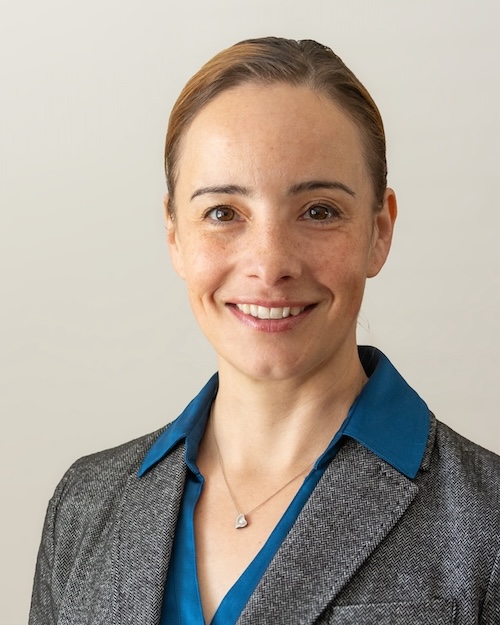
Heather Evans
OER Librarian, Coalinga College
LibreTexts has redefined equity in education, providing free, high-quality resources that break down barriers for California students and beyond. Under Dr. Delmar Larsen’s leadership, the team consistently delivers exceptional support—technical, managerial, and accessibility-focused—while addressing the diverse needs of disciplines and learners, from complex mathematical equations to vast art history visuals. Their powerful tools, including ADAPT for adaptive learning, the OER Remixer, Commons, Conductor, advanced visualization platforms, 3D molecular modeling, Jupyter Notebooks integration, and seamless LMS compatibility, alongside their integration of global best practices, ensure an unparalleled, adaptive learning experience. LibreTexts exemplifies what inclusive, cutting-edge education should be: accessible, responsive, and transformative.

Shagun Kaur
Instructor of Communication Studies, DeAnza College
The ADAPT platform allows nursing faculty from around the world to create and collaboratively share NCLEX Next-Generation style questions and case studies to help nursing students prepare for their licensure exam. To my knowledge, this is the only platform that promotes this level of faculty collaboration to promote student success.
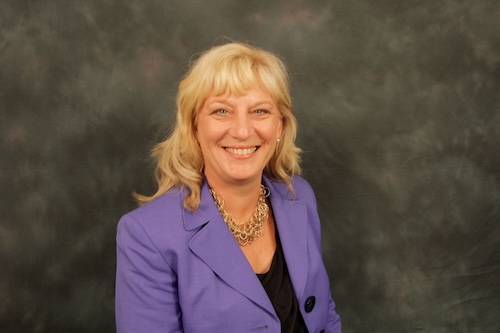
Kim Ernstmeyer
WisTech Open Nursing OER Lead Editor
LibreTexts has redefined equity in education, providing free, high-quality resources that break down barriers for California students and beyond. Under Dr. Delmar Larsen’s leadership, the team consistently delivers exceptional support—technical, managerial, and accessibility-focused—while addressing the diverse needs of disciplines and learners, from complex mathematical equations to vast art history visuals. Their powerful tools, including ADAPT for adaptive learning, the OER Remixer, Commons, Conductor, advanced visualization platforms, 3D molecular modeling, Jupyter Notebooks integration, and seamless LMS compatibility, alongside their integration of global best practices, ensure an unparalleled, adaptive learning experience. LibreTexts exemplifies what inclusive, cutting-edge education should be: accessible, responsive, and transformative.

Shagun Kaur
Instructor, Communication Studies, De Anza College
Dr. Delmar Larsen, founder and executive director of LibreTexts, exemplifies visionary leadership and unwavering dedication to advancing Open Educational Resources (OER). His extensive knowledge across scientific disciplines, combined with a strong commitment to educational equity, has transformed the landscape of OER content creation and distribution. Through LibreTexts, Dr. Larsen has pioneered one of the most comprehensive and accessible platforms for high-quality, free textbooks and learning materials, empowering educators and students globally. His service to the academic community—characterized by innovation, collaboration, and a commitment to reducing educational barriers—has not only expanded access to knowledge but also cultivated a sustainable model for OER development that continues to inspire and uplift the open education movement.

Dr. Deborah Gustlin
Instructor, Gavilan College